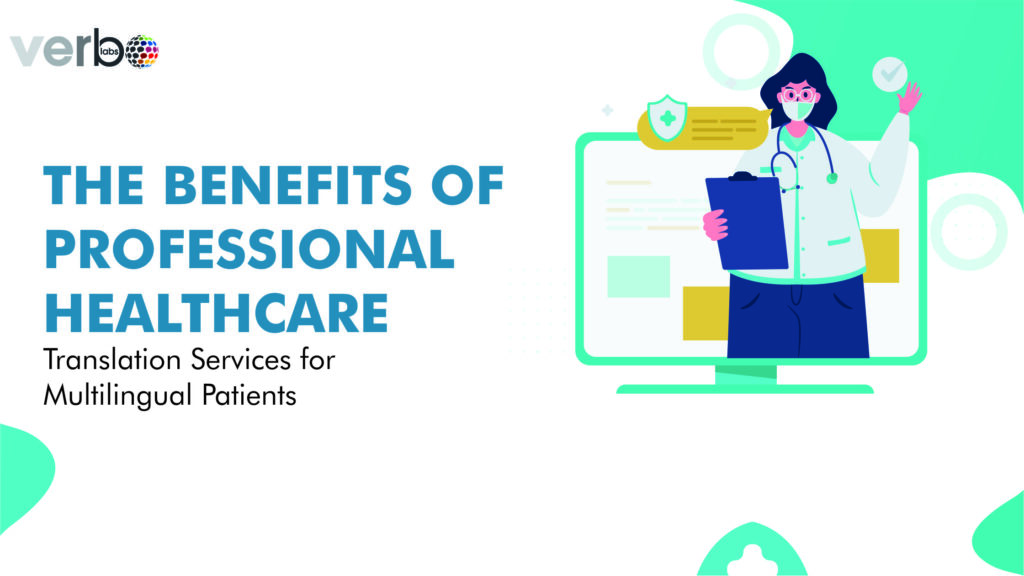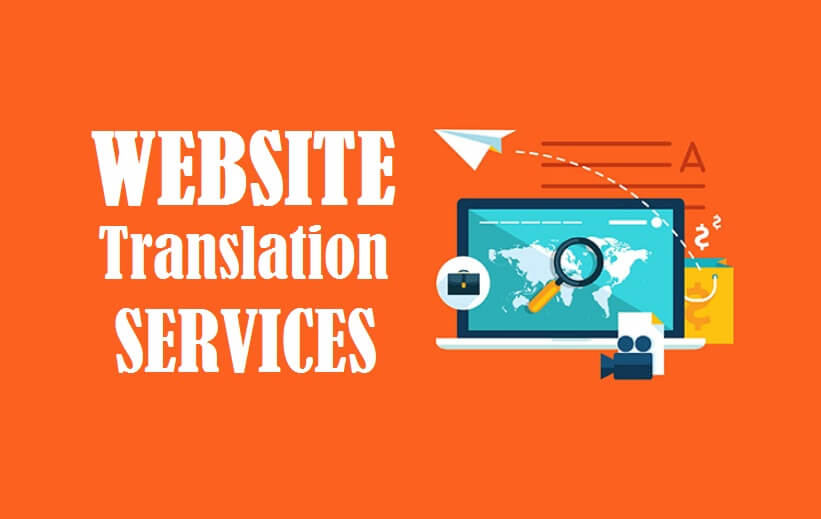In today’s increasingly globalized world, effective communication in healthcare settings has become more crucial than ever. With the rise of multicultural societies and international travel, healthcare providers encounter patients who speak different languages. This language barrier can significantly impact the quality of care and patient outcomes. Professional healthcare translation services bridge this gap by providing accurate and culturally sensitive translations, benefiting patients and healthcare providers.
Healthcare translation services offer significant advantages to individuals and organizations within the healthcare sector aiming to communicate effectively with their patients. So what exactly does medical translation involve? Medical translation involves the transfer of various medical texts, including technical documents, clinical drug information, patient histories, illness worksheets, and more, from one language to another. In many cases, medical translation is not only a practical necessity but also a legal requirement when healthcare providers engage with multilingual patients and stakeholders.
The field of medical translation operates within a highly regulated framework. Professional medical translators undergo specialized training and obtain professional certifications that equip them with the necessary skills to carry out their work successfully. This training ensures their proficiency in translating medical terminology accurately and conveying complex medical concepts precisely.
Throughout this article, we will comprehensively explore the multitude of benefits associated with utilizing professional healthcare translation services for multilingual patients.
Here are the benefits of Professional Healthcare Translation Services for Multilingual Patients
- Accurate and clear communication
- Culturally Sensitive Approach
- Improved Access to Healthcare
- Enhanced Patient Safety
- Legal and Regulatory Compliance
- Increased Efficiency and Cost-Effectiveness
- Elimination of Language Barriers
- Precise Medical Terminology
- Enhanced Patient Understanding
- Reduction of Medical Errors
Let’s delve into each of these points and explore the basic details of each one individually.
Accurate and Clear Communication
Professional healthcare translation services facilitate clear and precise communication between healthcare providers and patients who speak different languages. These services enlist the expertise of trained translators who possess fluency in both the source and target languages, along with a deep understanding of medical terminology. This proficiency ensures the accurate transmission of vital information, including medical history, symptoms, and treatment plans, thereby mitigating misunderstandings or errors that could adversely impact patient health.
Culturally Sensitive Approach
Language is deeply intertwined with culture, and understanding cultural nuances is essential in delivering patient-centered care. Professional healthcare translators are proficient in languages and well-versed in the cultural aspects of the communities they serve. They can accurately interpret patients’ needs, beliefs, and expectations, facilitating a more empathetic and culturally sensitive approach to healthcare delivery. Understanding cultural contexts can help establish trust and rapport, improving patient outcomes. This contributes to a patient-centered approach and helps overcome cultural barriers that may hinder effective communication.
Improved Access to Healthcare
Effective communication through professional translation service improves access to healthcare for multilingual patients. Language barriers can deter individuals from seeking medical attention, leading to delayed diagnosis and treatment. By providing translation services, healthcare facilities can ensure that language does not hinder seeking appropriate care. This promotes inclusivity and equity in healthcare delivery, allowing patients to fully understand their health conditions and make informed decisions about their treatment.
Enhanced Patient Safety
Ensuring patient safety is a top priority within the healthcare industry. Miscommunication due to language barriers can pose significant risks, such as misdiagnosis, medication errors, or inappropriate treatment. By utilizing professional healthcare translation services, healthcare providers can minimize these risks and improve patient safety. Accurate translation of medical information, instructions, and warnings reduces the likelihood of errors, ensuring that patients receive the correct treatment and follow appropriate care protocols.
Legal and Regulatory Compliance
Healthcare providers must adhere to legal and regulatory requirements, including language access. In many countries, laws mandate the provision of translation services to ensure equal access to healthcare for all patients. By partnering with professional translation service, healthcare organizations can fulfill these obligations, avoiding potential legal consequences and demonstrating their commitment to providing equitable care.
Increased Efficiency and Cost-Effectiveness
While some healthcare providers may rely on ad hoc translation methods, such as using bilingual staff or family members, these approaches could be more efficient and may compromise accuracy and confidentiality. Professional healthcare translation services streamline the translation process, ensuring timely and accurate communication. This efficiency saves healthcare providers time and resources, allowing them to focus on delivering quality care while minimizing the risk of errors or miscommunication.
Elimination of Language Barriers
Professional healthcare translation services bridge the language gap between healthcare providers and patients who speak different languages. They ensure that medical information, instructions, and discussions are accurately and comprehensively translated, allowing effective communication. This eliminates the potential for misunderstandings, misinterpretations, or incomplete information, which can have severe consequences for patient care.
Precise Medical Terminology
Professional healthcare translation services employ proficient translators who demonstrate fluency in both the source and target languages. Additionally, these translators possess extensive expertise in medical terminology, ensuring accurate and precise translations in the healthcare domain. They possess the knowledge and expertise to translate complex medical jargon accurately, ensuring the intended meaning is preserved. This precision is crucial for conveying diagnoses, treatment plans, medications, and other medical instructions to multilingual patients.
Enhanced Patient Understanding
Good communication fosters trust between healthcare providers and multilingual patients. Professional healthcare translation services ensure that patients’ concerns, questions, and cultural considerations are effectively conveyed, which helps build a strong rapport and enhances patient satisfaction. When patients can understand and communicate effectively with their healthcare providers, they become active participants in their own care. Professional translation service enable multilingual patients to fully comprehend their health conditions, symptoms, and treatment options. This understanding empowers them to make informed decisions, ask relevant questions, and actively engage in discussions about their healthcare journey.
Clear communication through professional translation service also improves patient compliance and treatment plan adherence. When patients comprehensively understand their prescribed medications, dosages, and usage instructions, they are more likely to follow them accurately. This reduces the risk of medication errors, adverse reactions, or treatment failure, ultimately improving patient outcomes.
Reduction of Medical Errors
Miscommunication due to language barriers can lead to medical errors, such as misdiagnosis, incorrect treatment, or improper follow-up care. Professional translation service minimize these risks by ensuring accurate and precise translation of medical information. By eliminating language-related misunderstandings, healthcare providers can make more accurate diagnoses and provide appropriate and timely care to multilingual patients.
Final Words
Professional healthcare translation services are crucial in addressing language barriers and promoting effective communication in healthcare settings. By providing accurate and culturally sensitive translations, these services facilitate patient-centered care, improve patient safety, enhance access to healthcare, and ensure compliance with legal and regulatory requirements. When patients can communicate effectively with their healthcare team, it creates a sense of understanding and empathy.
Investing in professional translation services has the potential to enhance patient well-being and contribute to improved health outcomes for multilingual patients. It offers invaluable advantages for multilingual patients in the healthcare sector. By ensuring effective communication, cultural sensitivity, and access to healthcare, these services contribute to improved patient outcomes and foster a more inclusive approach. Accurately transmitting medical information, compliance with legal requirements, and enhanced efficiency highlight the benefits of utilizing professional translation services in healthcare settings. Ultimately, by bridging language barriers and promoting clear communication, these services play a critical role in delivering equitable and high-quality care to diverse populations. In an increasingly diverse world, healthcare organizations must acknowledge the significance of these services and incorporate them into their language access strategies.



